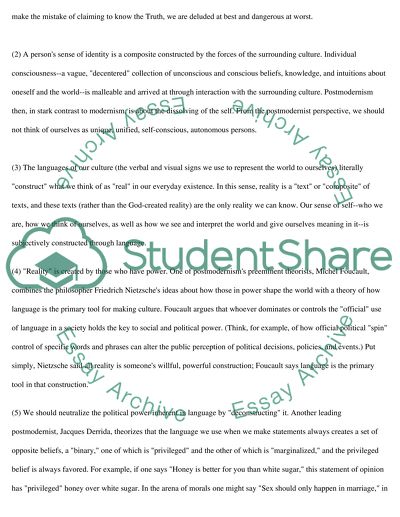Cite this document
(“Features of Postmodernism Essay Example | Topics and Well Written Essays - 1500 words”, n.d.)
Retrieved from https://studentshare.org/history/1500873-features-of-postmodernism
Retrieved from https://studentshare.org/history/1500873-features-of-postmodernism
(Features of Postmodernism Essay Example | Topics and Well Written Essays - 1500 Words)
https://studentshare.org/history/1500873-features-of-postmodernism.
https://studentshare.org/history/1500873-features-of-postmodernism.
“Features of Postmodernism Essay Example | Topics and Well Written Essays - 1500 Words”, n.d. https://studentshare.org/history/1500873-features-of-postmodernism.


